Herbs
Showing 109–120 of 198 results
-

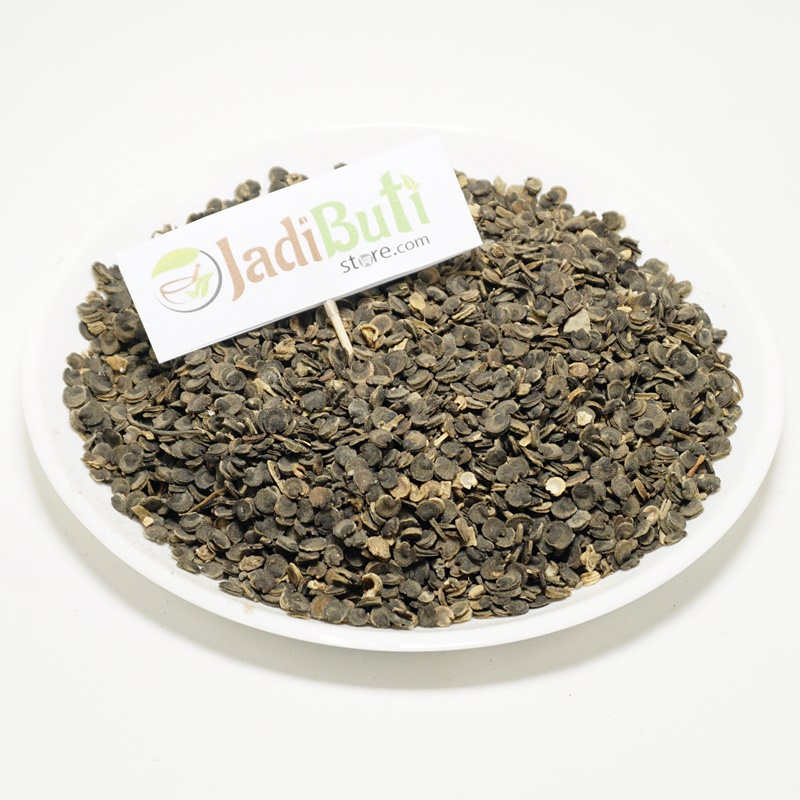
Khatmi – खात्मी – Marshmallow plant – Althaea Officinalis
₹160.00 – ₹1,250.00Quick ViewKhatmi | Common Name: Marshmallow seed
Botanical Name: Althaea officinalis | Plant Family: Malvaceae
Parts Used: Seeds
Active Compounds: The seeds contain mucilage, flavonoids, and other polysaccharides.
Ayurvedic Properties:
- Rasa (taste): Madhura (sweet)
- Guna (qualities): Guru (heavy), Snigdha (unctuous)
- Virya (potency): Sheeta (cooling)
- Vipaka (post-digestive effect): Madhura (sweet)
- Dosha effect: Pacifies Pitta and Vata doshas, may aggravate Kapha dosha in excess
-
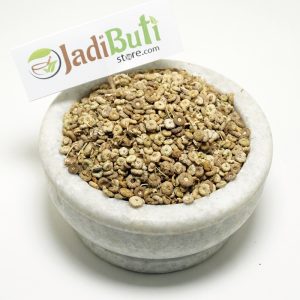
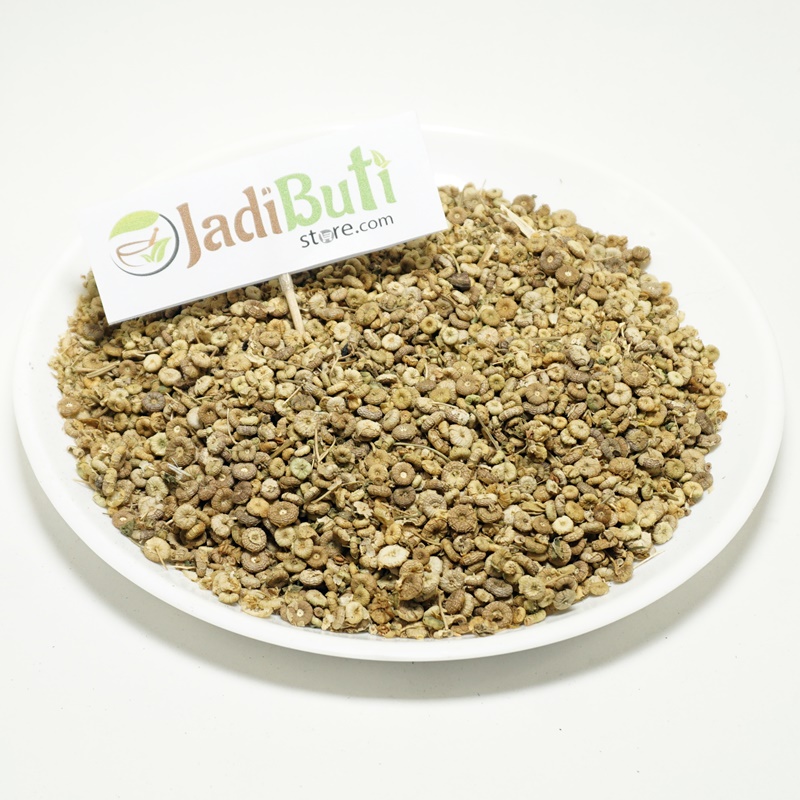
Khubbaji – खुब्बाजी – Mallow – Malva Sylvestris
₹280.00 – ₹2,295.00Quick ViewCommon Mallow, High Mallow | Ayurvedic Name: Khubbaji, Kanghi
Scientific Name: Malva Sylvestris | Family: Malvaceae
vernacular names : Common Mallow, High Mallow, Blue Mallow, French Hollyhock, Common Hollyhock, Tall Mallow, Garden Mallow, Wood Mallow, Cheese-cake, Round Dock
Ayurvedic Property Ayurvedic Use Rasa (Taste) Madhura (Sweet), Kashaya (Astringent) Guna (Quality) Guru (Heavy), Snigdha (Oily), Picchila (Slimy) Virya (Potency) Shita (Cooling) Vipaka (Post-Digestive Taste) Madhura (Sweet) Dosha (Effect on Humors) Balances Pitta and Kapha Doshas, may aggravate Vata Dosha in excess Dhatu (Tissue) Plasma, Blood, Muscle, Bone Srotas (Channel) Respiratory, Digestive, Urinary, Reproductive Action Anti-inflammatory, Antioxidant, Anti-microbial, Anti-allergic, Muscle Relaxant, Wound Healing, Diuretic -
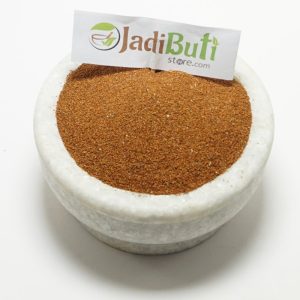
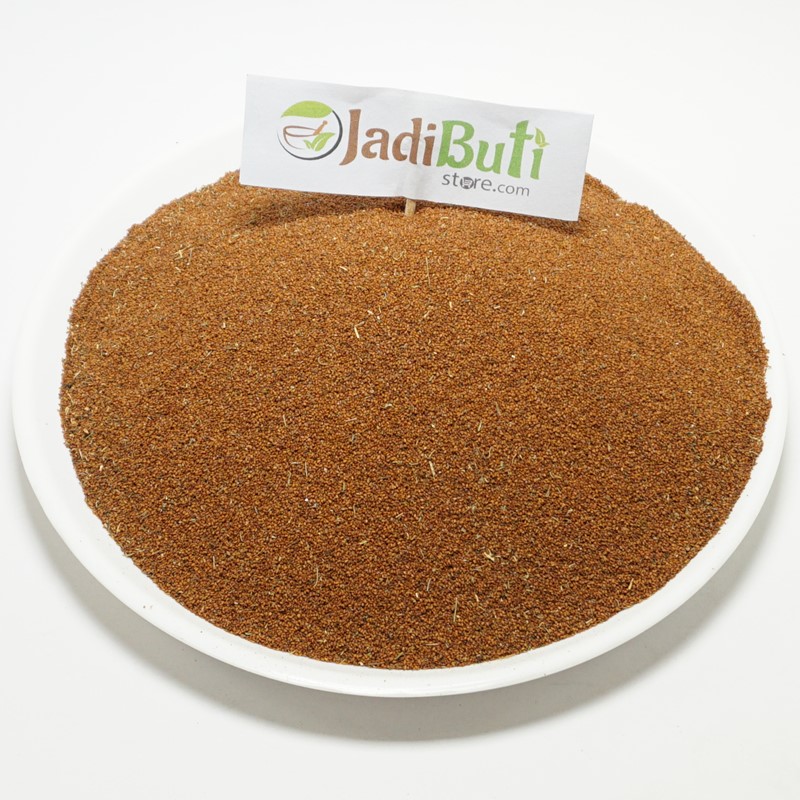
Khubkala – खुबकला – London rocket – Sisymbrium irio
₹130.00 – ₹1,055.00Quick ViewName: Khubkala Scientific name: Lepidium sativum Family: Brassicaceae Ayurvedic properties: Heating energy (virya), pungent post-digestive effect (vipaka) Properties: Anti-inflammatory, antimicrobial, antioxidant, diuretic, expectorant, galactagogue, aphrodisiac, digestive, analgesic Uses: Respiratory problems, digestive problems, urinary tract infections and kidney stones, menstrual cramps and irregular periods, low libido and erectile dysfunction, arthritis and joint pain, skin disorders Forms: Seed Precautions: Consult a qualified Ayurvedic practitioner before using. Pregnant or breastfeeding women should avoid Khubkala. Ayurvedic Property Classification Rasa (taste) Pungent (katu) Virya (energy) Heating (ushna) Vipaka (post-digestive effect) Pungent (katu) Guna (properties) Light (laghu), dry (ruksha), and sharp (tikshna) -

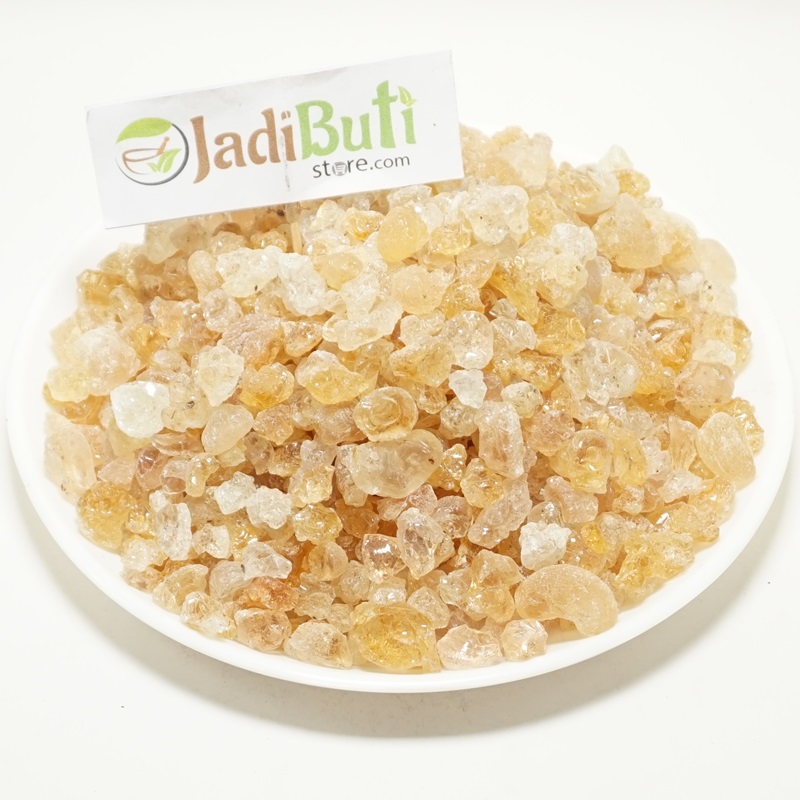 SOLD OUT
SOLD OUTKikar gond – कीकर गोंद – Babool Gum – Vachellia nilotica
₹130.00 – ₹995.00Quick ViewKikar gond – कीकर गोंद – Babool Gum – Vachellia nilotica.
Kikar gond Name in different languages:
Kikar gond English name – Babool gum
Kikar gond Hindi name – kikar gond
Kikar gond Latin name – Vachellia nilotica
-
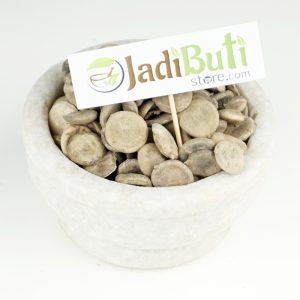
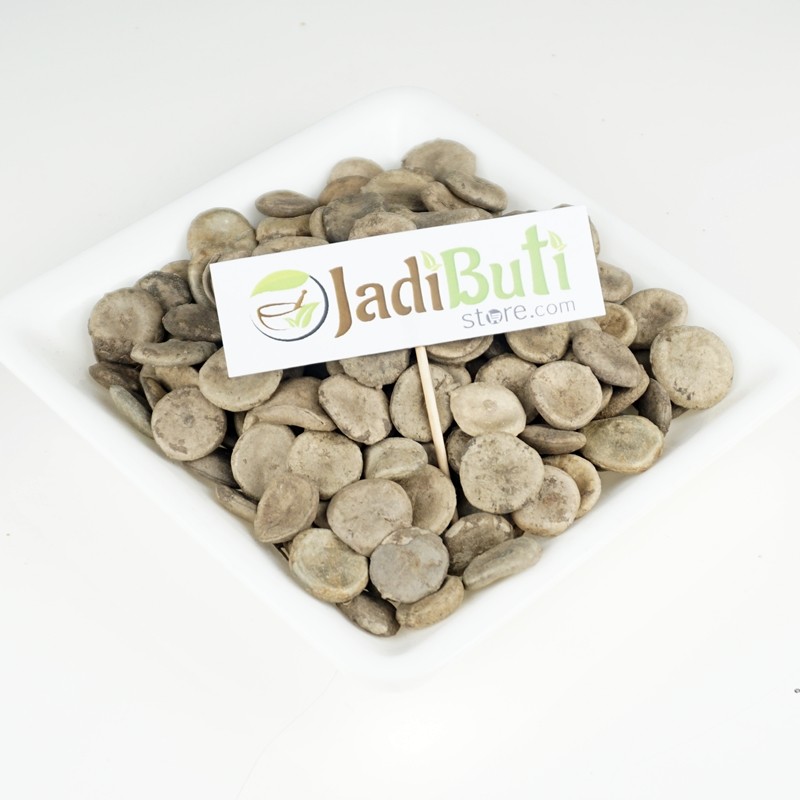
KUCHLA BEEJ – NUX VOMICA SEEDS
₹280.00 – ₹780.00Quick ViewKUCHLA BEEJ – NUX VOMICA SEEDS
The key benefits of Nux vomica seeds, used in traditional Ayurvedic medicine, include:
- Stimulant: The seeds of Nux vomica are considered to have stimulant properties, which can help improve energy levels and increase mental alertness.
- Tonic: Nux vomica seeds are considered to have tonic properties, which can help improve overall health and wellbeing.
- Purgative: The seeds are also used as a purgative, which means they can help relieve constipation and promote healthy digestion.
- Headache remedy: Nux vomica seeds are used as a remedy for headache, which is thought to be due to their pain-relieving and anti-inflammatory properties.
- Liver and digestive disorders: The seeds are also used as a remedy for liver and digestive disorders, as they are believed to help improve liver function and reduce symptoms of digestive disorders such as indigestion and bloating.
It’s important to note that while traditional Ayurvedic remedies have been used for centuries and have a long history of use, there is limited scientific evidence to support their efficacy and safety. Nux vomica seeds are highly toxic and can cause serious side effects if taken in excess. If you are considering using Nux vomica seeds for their potential health benefits, it is always best to consult with a healthcare professional first to ensure that they are safe and appropriate for you.
-
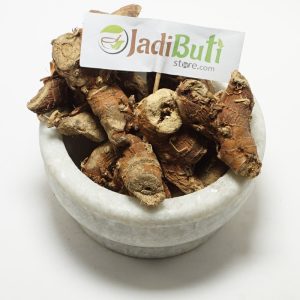
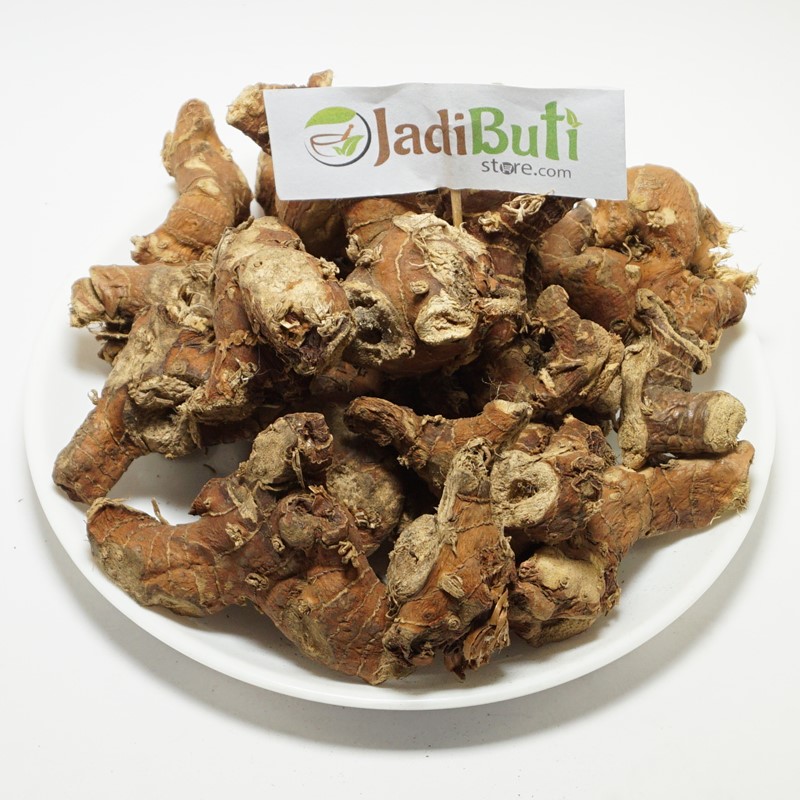
Kulanjan Root – कुलंजन – Colic Root – Alpinia Galanga
₹140.00 – ₹1,160.00Quick ViewKulanjan Root | Other Names: Galangal Root, Greater Galangal, Siamese Ginger
Scientific Name: Alpinia galanga
Property Ayurvedic Name Rasa (taste) Katu (pungent), Tikta (bitter) Guna (quality) Laghu (light), Ruksha (dry) Virya (potency) Ushna (hot) Vipaka (post-digestive effect) Katu (pungent) Doshas (effect on humors) Balances Kapha and Vata doshas, may increase Pitta dosha in excess Ayurvedic Uses:
- Digestive health: Stimulates digestion, reduces bloating, gas, and indigestion
- Anti-inflammatory effects: Reduces inflammation and pain, beneficial for arthritis and other inflammatory conditions
- Respiratory health: Improves respiratory health, relieves symptoms of coughs, colds, and bronchitis
- Immune system support: Supports immune system, protects against infections and illnesses
- Skin health: Protects the skin from damage, promotes healthy skin
- Cognitive function: Enhances cognitive function, improves memory
- Menstrual health: Regulates menstrual cycle, reduces menstrual pain and irregularities, relieves symptoms of PMS
- Cardiovascular health: Improves blood circulation, reduces risk of heart disease, lowers cholesterol levels and blood pressure
- Anti-cancer effects: May help protect against certain types of cancer
- Anti-aging effects: Protects against age-related damage, improves skin elasticity, reduces appearance of wrinkles
- Weight loss: Promotes weight loss, increases metabolism, reduces appetite
-
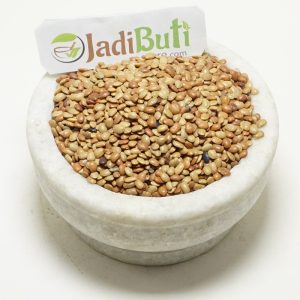

Kulthi Dal (Organic) – कुल्थी दाल – Horse Gram – Dolichos biflorus
₹285.00 – ₹620.00Quick ViewKulthi dal, also known as horse gram, is a type of legume that is commonly used in Indian cuisine. It has been used in Ayurvedic medicine for its various health benefits. Here are some Ayurvedic properties and benefits of kulthi dal:
Ayurvedic Properties:
- Rasa (Taste): Pungent, Astringent
- Virya (Energy): Heating
- Vipaka: Pungent
- Guna (Quality): Light, Dry
Ayurvedic Benefits:
- Weight Loss: Kulthi dal is low in calories and high in protein, making it an ideal food for weight loss.
- Digestive Health: Kulthi dal is considered a digestive stimulant and may help alleviate digestive issues like constipation and diarrhea.
- Kidney Health: Kulthi dal is considered a diuretic and may help improve kidney function and prevent kidney stones.
- Diabetes Management: Kulthi dal may help regulate blood sugar levels and can be beneficial for people with diabetes.
- Respiratory Health: Kulthi dal is used in Ayurveda to treat respiratory conditions like asthma, bronchitis, and coughs.
- Skin Health: Kulthi dal is used in Ayurveda to treat skin conditions like acne and eczema.
Note: The information provided is for educational purposes only and is not intended to diagnose, treat, cure, or prevent any disease. Please consult with a qualified healthcare practitioner before using herbal products, especially if you are pregnant, nursing, or taking any medications.
-
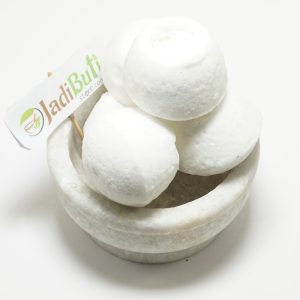
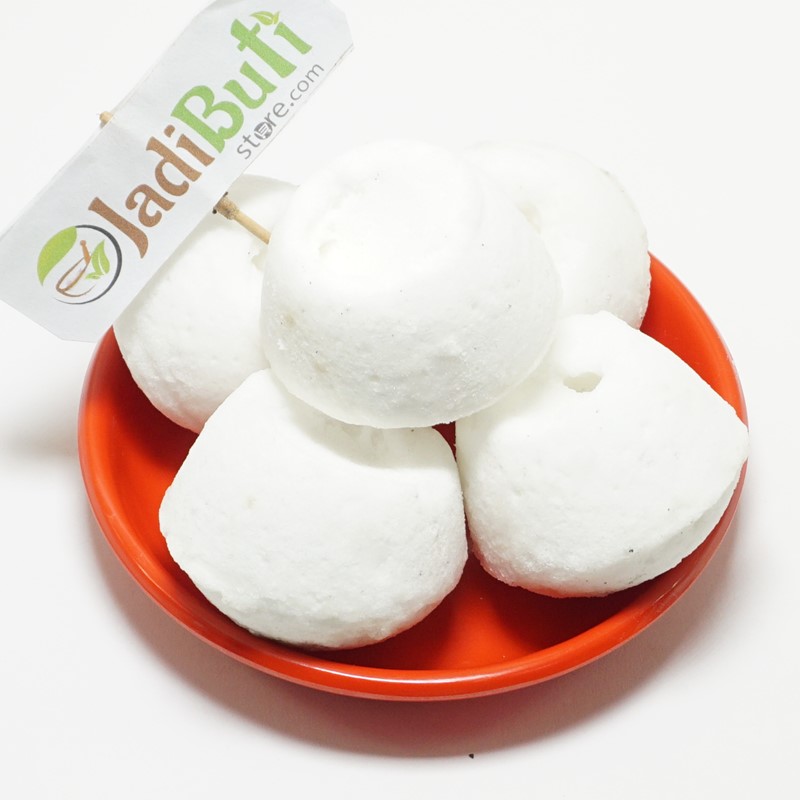
Kunja mishri – कुंजा मिश्री – Mishri balls – Rock candy
₹120.00 – ₹920.00Quick ViewAyurvedic Name Kunja Mishri or Kumbh Shakkar Properties Balances Vata and Pitta doshas, boosts immunity and energy levels, supports respiratory health, promotes healthy digestion and metabolism Nutritional Value Contains calcium, iron, potassium Uses Sweetener in cooking and beverages, used in Ayurvedic medicine for its health benefits Precautions Excessive consumption of any type of sugar can have negative health effects Ayurvedic Benefits :
- Helps to balance Vata and Pitta doshas
- Boosts immunity and energy levels
- Supports respiratory health
- Promotes healthy digestion and metabolism
- Helps to soothe sore throat and cough
-
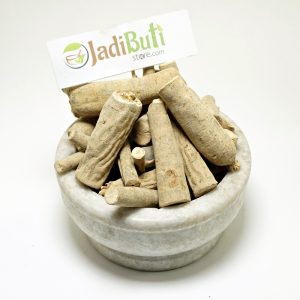
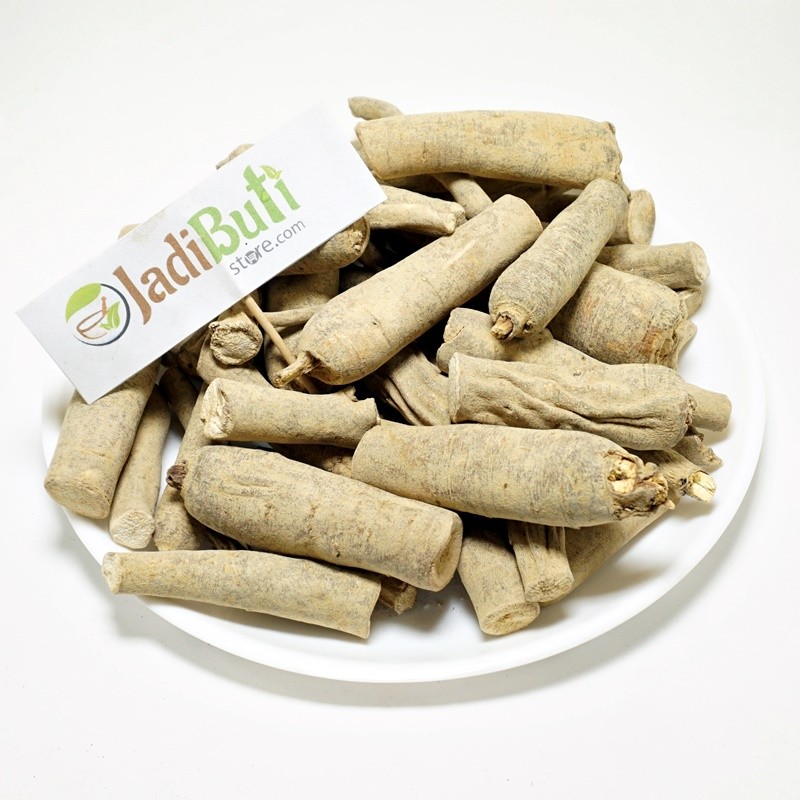
Kuth Meetha – कुठ मीठा – Costus – Saussurea costus
₹220.00 – ₹1,710.00Quick ViewKuth Meetha – कुठ मीठा – Costus – Saussurea costus.
Kuth Meetha Name In Different Languages:
Kuth Meetha in English – Costus root
Kuth Meetha in Hindi – Kuth
Kuth Meetha in Latin – Saussurea costus
Kuth Meetha in Sanskrit – Vapya, Paribhavy
Kuth Meetha in Bengali – Kud
Kuth Meetha in Marathi – Koshth
Kuth Meetha in Gujrati – Kathu upmat
Kuth Meetha in Telugu – Kushtha
Kuth Meetha in Persian – Kust-e-talkh
Castus root is hot in nature, spicy and tasty. It enhances sperm count. If someone breaks castus root and it breaks easily, it should be considered that costus root is pure (natural).
-
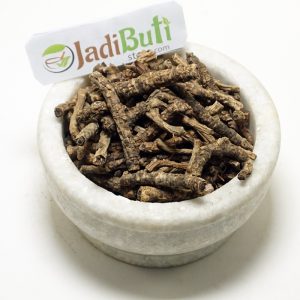
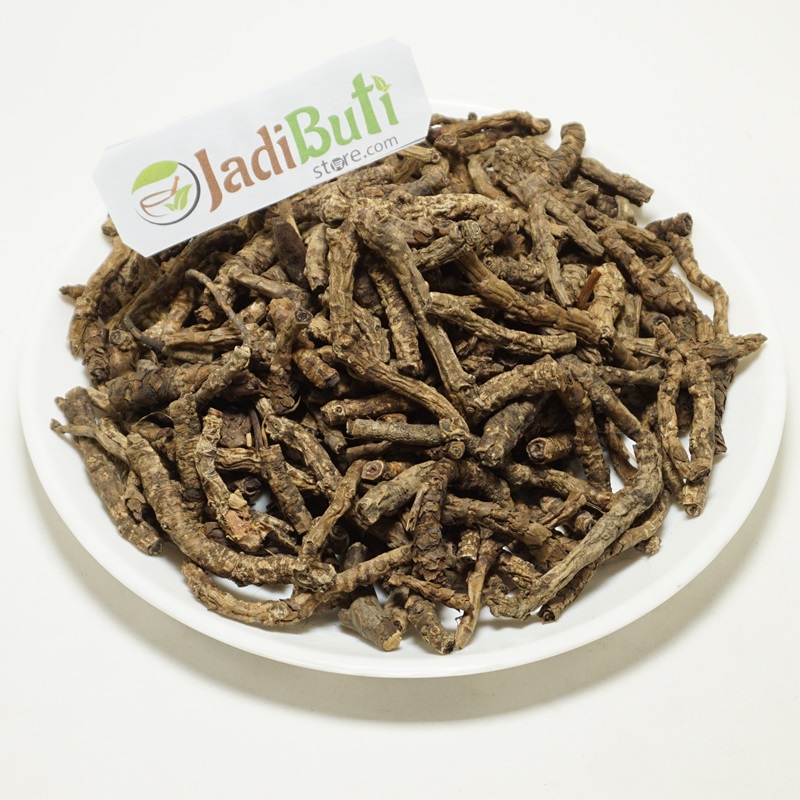
Kutki (Organic) – कुटकी – Gentiana kurroo – Picrorhiza kurroa
₹320.00 – ₹4,450.00Quick ViewKutki | Scientific Name: Picrorhiza kurroa
Plant Family: Scrophulariaceae | Parts Used: Roots, Rhizomes
Taste (Rasa) Energy (Virya) Dosha Effect Bitter (Tikta) Heating (Ushna) Balances Pitta and Kapha Pungent (Katu) May increase Vata if used in excess Active Compounds Function Iridoid glycosides (kutkoside, picroside) Hepatoprotective, anti-inflammatory Kutkine Antioxidant Apocynin Anti-inflammatory Cucurbitacin Anticancer, immunomodulatory -
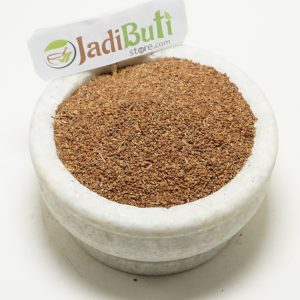
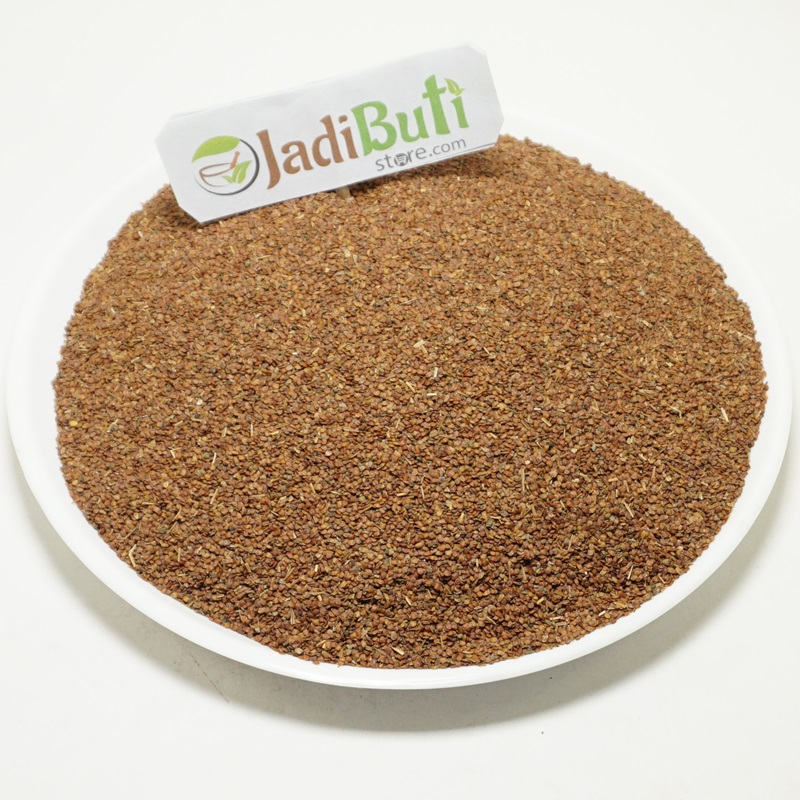
Lajwanti – लाजवंती – Sensitive Plant – Mimosa pudica
₹160.00 – ₹1,225.00Quick ViewLajwanti seeds | Scientific name: Mimosa pudica
Ayurvedic properties:
- Anti-inflammatory
- Digestive
- Respiratory
- Skin health
- Diuretic
- Nervous system health
- Anti-diabetic
- Cardiovascular health
- Immune system health
- Menstrual health
- Anti-cancer
- Wound healing
Ayurvedic Property Classification Rasa (taste) Bitter (tikta) and astringent (kashaya) Virya (energy) Cooling (shita) Vipaka (post-digestive effect) Pungent (katu) Guna (properties) Light (laghu), dry (ruksha), and sharp (tikshna) -
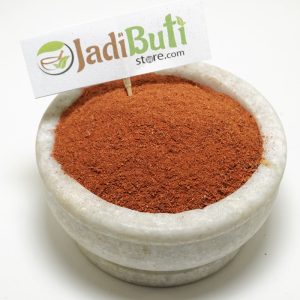
Lal Chandan Powder – लाल चंदन – Red Sandalwood Powder – Pterocarpus santalinus
₹80.00 – ₹845.00Quick ViewRed sandalwood powder has been used for centuries in traditional Ayurvedic medicine as a natural remedy for various health and beauty conditions. Red sandalwood powder has anti-inflammatory, antiseptic, and astringent properties, making it a popular ingredient in skincare, hair care, and medicinal products. It can help to soothe and brighten the skin, reduce acne and dark spots, promote hair growth, and relieve sunburn and inflammatory conditions. Red sandalwood powder is also used in aromatherapy and meditation practices for its calming and grounding effects on the mind. It is often combined with other natural ingredients, such as turmeric, honey, and milk, to create face masks and other skincare products. Red sandalwood powder is considered safe and gentle for most skin types.
